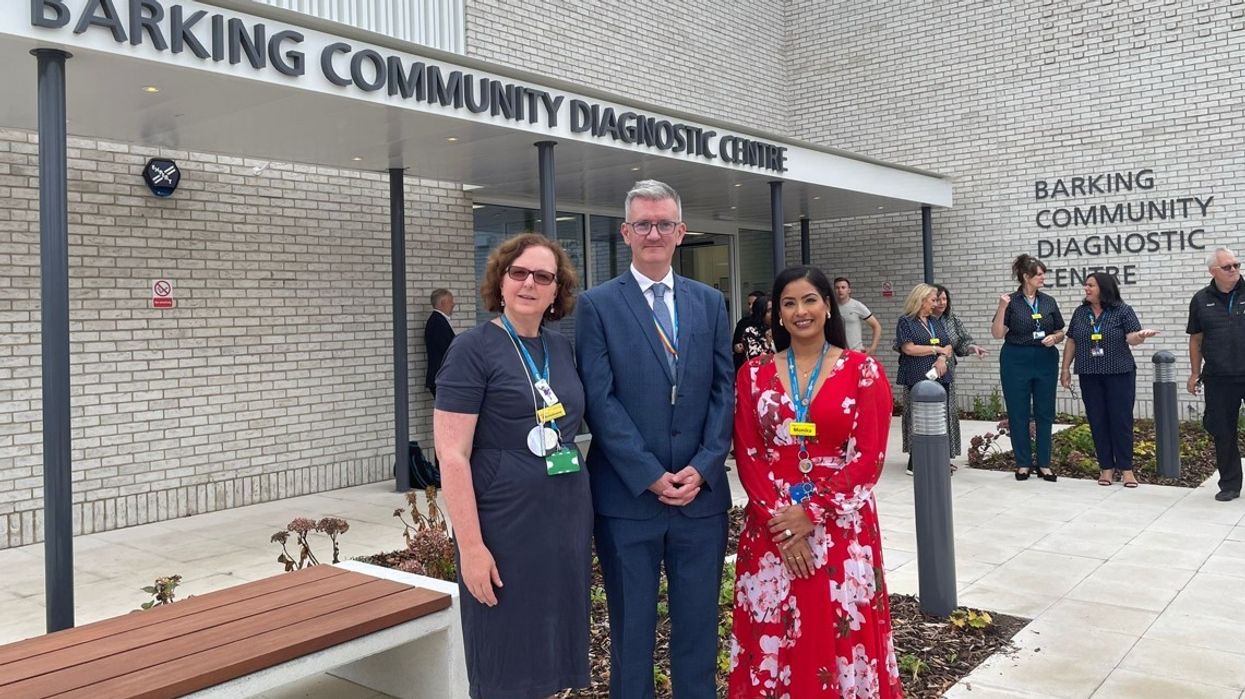East London residents will benefit as the NHS will be able to carry out 50,000 more tests a year thanks to a new diagnostics centre, a health trust says.
The community diagnostic centre (CDC) at Barking Community Hospital was formally opened today (25th July) and will serve patients from Redbridge and Havering, too.
The centre – part of a £30 million investment into Barking and Mile End hospitals – offers both MRI and CT scans, as well as ultrasound, abdominal scans, and blood tests.
Matthew Trainer, the chief executive of the Barking, Havering and Redbridge University Hospitals Trust (BHRUT), said it would speed up patients’ treatment and help cut waiting lists in north-east London.
He said: “People are coming in for a test and they’ll get a call the next day to tell them, in most cases, they’ve got the all clear.
“We know when folk are worried about things like cancer, it’s a big source of anxiety for them and the family. The quicker we can get them tested and give them the news or get them onto a treatment pathway, the better the outcome.”
He added: “Patients should start to see the pressure on our waiting lists beginning to ease off.”
Though BHRUT has been improving over the past few months, having left ‘special measures’ in May, it has fallen behind on cancer diagnoses.
The trust met the 96 per cent target for diagnoses within 31 days but missed the 85 per cent target for 62-day diagnoses by 14 per cent.
Matthew told the Local Democracy Reporting Service (LDRS) it was due to “congestion” in the system, and the new facility would “definitely” help.
The CDC is home to several ‘state-of-the-art’ pieces of technology, including a swallowable ‘pill camera’ used to photograph the insides of a patient’s stomach. General surgeon Dip Mukherjee said it would offer them a “more dignified” procedure.
He added that the waiting list for endoscopies, used to diagnose acid reflux and incontinence, was “very high”.
Endoscopies are performed via nasal cameras, rather than using a less comfortable tube that goes down the throat.
Chrissy Zelenyanszki, the programme leader, said the services had “improved patients’ quality of life”.
She added that “little details,” such as dementia-friendly clocks, had been prioritised for how they would “really improve the experience”.
Patients previously had to travel to Queen’s Hospital, in Romford, to access such services. The chief executive added the borough had “suffered” as a result and the new centre would prove a “wonderful thing”.
The centre also houses a respiratory clinic – to test for asthma and other ailments – and ECG machines, to monitor hearts, in “modern, spacious and airy” rooms.
NHS England provided the building costs and will cover the first few years of operation.
Matthew Trainer told the LDRS: “The capital needed for something like this pays itself back many times over. It’s a good time to have a look at how we invest in these facilities, because patients and staff will feel the difference.”
Sir Mike Richards was invited to cut the purple ribbon, having pioneered the concept in a 2020 report on the NHS’ long-term capacity.
(Local Democracy Reporting Service)




